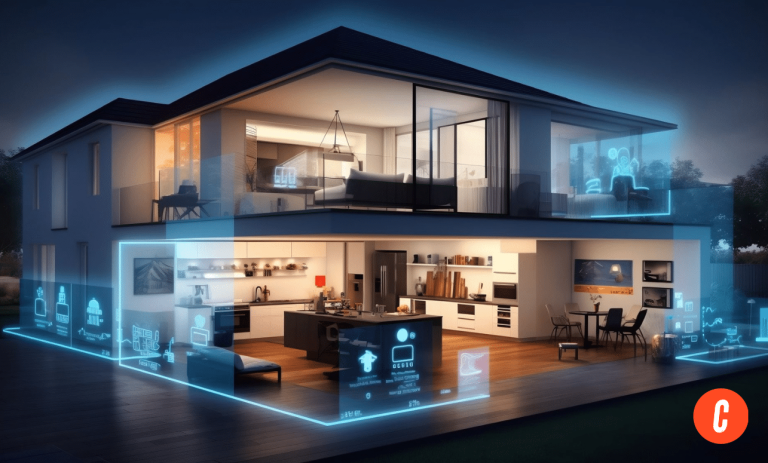The smart homes trend is trending as Internet of Things (IoT) devices like smart locks, thermostats, and voice-activated lighting become standard in homes, boosting property appeal and value. As of May 2025, Statista projects the U.S. smart device market to grow at 10.66% annually through 2028, a sentiment echoed on X for its buyer appeal. Consequently, real estate is embracing connected living. This article explores smart homes IoT real estate, its features, impacts, and why it’s driving clicks.
The IoT Transformation
Smart Home Features
The smart homes trend offers automation. Specifically, IoT enables smart locks, self-adjusting HVAC, and automated lights, per NAR. Moreover, X posts highlight Chandigarh’s IoT security systems, per @propertywala. As a result, buyer convenience surges.
Market Adoption
Furthermore, widespread use drives demand. For example, 82% of 30-49-year-olds use smart devices, per Pew Research Center. Additionally, Canada’s housing supply push includes IoT-ready homes, per X posts. Therefore, market appeal grows.
Impacts on Real Estate and Buyers
Property Value Boost
The smart homes IoT real estate trend increases home prices. For instance, IoT-equipped homes sell for 5% more, per Forbes. Moreover, X posts note Bangalore’s mid-luxury IoT homes, per @propertywala. Thus, investment returns rise.
Energy Efficiency
Moreover, it promotes sustainability. Specifically, IoT sensors cut energy use by 15%, per PwC. Additionally, Eddie Mutwe’s detention highlights human rights contrasts with tech progress, per X posts. As a result, green living attracts buyers.
Challenges Facing IoT Adoption
Cost Barriers
However, smart homes IoT real estate faces expense issues. For example, retrofitting costs $5,000-$10,000, per Sloboda Studio. Moreover, X posts cite affordability concerns, per @HandoffAI. Therefore, accessibility is limited.
Cybersecurity Risks
Another challenge is data security. Specifically, IoT devices face hacking risks, per Forbes. Furthermore, Uganda’s funding rules reflect governance challenges, per X posts. Consequently, trust is critical.
The Future of Smart Homes
Tech Integration
Looking ahead, smart homes IoT real estate will expand. For instance, 5G will enhance IoT connectivity by 2026, per Forbes. Additionally, Canada’s housing minister supports tech-ready homes, per X posts. Thus, innovation will accelerate.
Buyer Expectations
Furthermore, consumer demand will shape markets. For example, Millennials prioritize IoT neighborhoods, per NAR. Moreover, The Weeknd’s Cannes premiere reflects cultural tech trends, per X posts. As a result, market standards will evolve.
Conclusion
In summary, smart homes IoT real estate transforms property appeal with automation and efficiency, captivating audiences with its tech stakes. Despite cost and security challenges, its growth redefines homebuying. As a trending story, smart homes IoT real estate fuels clicks with its connected future.
Other News:

